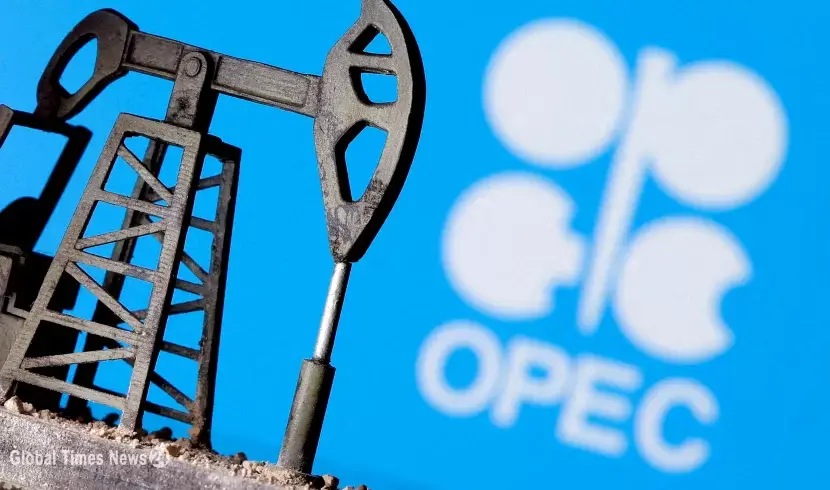While the White House expected a better outcome from the President's visit to the region, including Saudi Arabia, the interaction and treatment of American officials and the statements of this country's experts say something else.
USA TODAY wrote: “US President Joe Biden came to the Middle East and along the way tried to find a solution to one of the most important crises that America is currently dealing with by improving his relations with the ruling family of Saudi Arabia.”
The increase in the oil price has affected the lives of many Americans and caused the inflation rate to reach the highest level in the last 40 years.
During his trip to Israel and Saudi Arabia, the President Joe Biden said: "I'm doing all I can to increase the supply for the United States of America, which I expect to happen."
But the analysts say otherwise, they say that even if the Saudis had the possibility to supply more oil, they would probably be not willing to export more oil.
At the beginning of his arrival in Saudi Arabia, Biden met with King Salman bin Abdulaziz and the Crown Prince Mohammed bin Salman, and claimed that he had good discussions with the king and the Saudi Crown Prince about the supply of oil and the sustainability of the oil supply to the world markets, but White House National Security Advisor Jake Sullivan says else way, Sullivan's comments indicated Biden's failure to achieve his goals in this trip.
The White House National Security Adviser said that one should not expect an increase in Saudi oil exports anytime soon. He said: "I don't think, during this trip, a statement will be issued by Saudi Arabia about increasing oil exports."
He added: "Any change in the increase of oil supply to the world markets will come in the coming weeks and from the outcome of the OPEC+ meeting."
Now, Biden is left with the severe pressure he is facing from the American society due to the rising inflation rate, especially since the main reason for the increase in inflation in the United States is the increase in the price of oil, which has also affected the food prices and even rents.
What do analysts say about this?
Many analysts and experts have reacted to the Saudis' reluctance to supply more oil to the world markets:
Ben Cahill, a senior fellow in the Energy Security and Climate Change Program at the Center for Strategic and International Studies in Washington, D.C. says: “Saudi Arabia prefers to manage the market through the Organization of the Petroleum Exporting Countries and allied producers (OPEC+), not through unilateral moves.”
He emphasizes: “While Saudi Arabia is considered the largest oil producer in OPEC+, the coordination and coherence of the Saudis with other countries has helped this country to manage the fluctuations of the oil market.”
Cahill says: The Saudis don't want to act self-centered in this matter, maintaining coordination with other OPEC+ member countries is really one of their main priorities at the moment.
OPEC+ group announced in June that they will increase their oil production by 200,000 barrels per day in July and August.
Paul Pillar, a senior fellow at Georgetown University's Center for Security Studies, says: “Saudi leaders have talked a good game about increasing to 12 or even 13 million barrels per day, but observers of the Saudi oil industry have serious doubts.” They don't have the capacity to produce more than 12 million barrels for a long time.
Mike Sommers, chief executive of the American Petroleum Institute (API), says: “If the US government is serious about increasing oil production, they should enter into a dialogue with domestic producers instead of going to the Saudis.”
Martin Indyk, the former US ambassador to Israel, also said in an interview with a Hebrew-language media: "The Saudis do not want to issue a clear statement about increasing their oil exports."
He emphasized: While Saudi Arabia is the only oil exporting country that has the capacity to supply more oil, they are coordinating with the Russians to limit their oil exports.
Karen Young, an expert at the Middle East Institute, also believes that even if Saudi Arabia agrees to increase oil exports, it is unlikely that this issue can quickly reduce the price of gasoline in the United States.
“Oil imported to America must be refined before entering the market, we don't have enough capacity to refine gasoline and we can't meet the demand, so the issue of gasoline in America is more of an internal challenge than an external one,” the expert adds.
News ID : 1051


 Syria condemns the US for plundering its oil and wealth
Syria condemns the US for plundering its oil and wealth
 Why is Rice so Popular?
Why is Rice so Popular?
 Saudi Arabia's Surveillance Tactics: From Pegasus Spyware to Wiretapping Allegations
Saudi Arabia's Surveillance Tactics: From Pegasus Spyware to Wiretapping Allegations
 Elon Musk enters Twitter HQ with sink in hand
Elon Musk enters Twitter HQ with sink in hand
 North Korea Backs UN Resolution for Palestine
North Korea Backs UN Resolution for Palestine
 Despite Biden's vows, Yemen starves
Despite Biden's vows, Yemen starves
 Kiss of Ashgabat
Kiss of Ashgabat
 Increase in the cost of Hajj up to 300% in 2022
Increase in the cost of Hajj up to 300% in 2022
 NOPEC; US attempt to realize the long-held dream of a "new Middle East"
NOPEC; US attempt to realize the long-held dream of a "new Middle East"
 What is the "curse of the eighth decade" and why are Zionist Jews so terrified of it?
What is the "curse of the eighth decade" and why are Zionist Jews so terrified of it?
